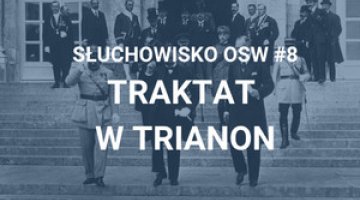Ukraine: a blow against the national minorities’ school system
On 25 September, President Petro Poroshenko signed an Education Act, which had been adopted by the Verkhovna Rada (Ukrainian parliament) on 5 September. The new law, which was announced to the public only on 26 September, introduces serious changes in Ukraine’s school and education system. The period of school education has been extended from 11 to 12 years (it has been divided into three stages of education: a four-year primary school, a 5-year middle school and three years of specialist/vocational training), and the programme and methods of teaching are expected to undergo far-reaching changes. In the Ukrainian government’s narrative, this is above all a modernisation act aimed at bringing Ukraine closer to European educational standards and raising teachers’ wages.
The act introduces major changes in the functioning of national minorities’ schools. National minorities’ languages can be the language of instruction only in selected classes and exclusively at the initial stage of education (in the kindergarten and in grades 1 – 4). Ukrainian will be the only admissible language of instruction at the stages of middle school and specialist education (grades 5 – 12) although there is a regulation that guarantees representatives of national minorities the opportunity to learn their language during extracurricular classes. The act does not contain regulations that would allow national minority schools to continue operation; it only provides for the operation of national minority classes. Full rights of receiving education in their native language will only be vested in representatives of the “indigenous nations of Ukraine” (Crimean Tatars, Karaites and the Gagauz people). The provisions of the act concerning national minorities will take full effect on 1 September 2020 (the number of subjects with Ukrainian as the language of instruction at the middle school stage, i.e. in grades 5 – 9, will begin to be gradually increased starting from 1 September 2018).
The new law has provoked massive criticism, especially in Hungary, Romania and Russia. Romanian and Hungarian politicians agree that a firm reaction to Ukraine’s moves is necessary. The parliaments of these two countries unilaterally passed resolutions claiming that the act “severely restricts” the right to education in the national language. Budapest has emphasised that the new standards are lower than those during Soviet times and has announced that it will block Ukraine’s European integration.
According to official data, 581 schools with Russian as the language of instruction (365,000 pupils), 78 Romanian and Moldovan schools (19,000 pupils), 71 Hungarian schools (16,000 pupils) and 6 Polish schools (in Mostyska, Lanovychi, Striletske, Horodok and two in Lviv; a total of 1,800 pupils attend the schools) operate at present in Ukraine.
The controversy surrounding the act
The overriding goal of the newly adopted act is to strengthen the role of the Ukrainian language and to weaken the dominance of Russian in the school system in the south-eastern regions of the country. The regulations adopted by parliament in fact mean the liquidation of Russian-language school education at a level higher than primary education (i.e. in grades 5 – 12) and mark another step in the policy consistently pursued over the past four years aimed at the de-Russification of Ukraine. As a result, it is the Russian-speaking minority (15% of the country’s residents declare that Russian is their native language, and 22% recognise both Ukrainian and Russian as their native languages) who will feel the consequences of the changes most strongly.
The wording of the act signed by the president differs significantly from that of the bill submitted to the Verkhovna Rada (see the comparison of the key provisions in the appendix). This is a result of the turbulent parliamentary discussion that preceded the second reading during which the amendments – which the minorities consider to be the most important and controversial – were introduced. The present version of the act does not envisage the existence of ‘national minority schools’ at all; it only provides for the operation of ‘minority classes’ at Ukrainian schools. It is worth noting that national minority schools do not limit their activity to providing education in a given language — they also offer a cultural and upbringing programme which is implemented not on the level of classes but on that of a school as a whole (celebrations, assemblies, clubroom and library activity, etc.). The changes may undermine minorities’ rights to activities of this kind.
Although the new act significantly restricts education in national minority languages, according to the Ukrainian government, it also contains regulations that make education possible in languages other than Ukrainian also in grades 5 – 12. The act (article 7, clause 4) provides for the possibility of learning one or more subjects in two languages – Ukrainian and one of the official languages of the European Union (i.e. for example, Romanian, Hungarian, Polish but not Russian). However, this regulation is not quite clear because it makes the introduction of such classes dependent on the curriculum adopted, which will be determined by the Ministry of Education of Ukraine. Thus it will depend on executive regulations whether curricula enabling learning more subjects in languages other than Ukrainian will be developed.
The reaction from Russia
Initially, the Russian reaction to the act was quite moderate, less fierce than in the case of amendments of Ukrainian regulations concerning the Russian language issue in the past. Moscow focused above all on emphasising criticism from EU member states (especially Hungary). In its statement of 12 September, the Russian Ministry of Foreign Affairs accused Ukraine of attempting to fully Ukrainise the education system, which is contrary to national and international law. The Russian president’s spokesman, Dmitry Peskov, also expressed moderate criticism of the new education regulations on 26 and 27 September. The harsh criticism of the Education Act in the resolution of the Russian State Duma and Federation Council adopted on 27 September may be a hint that the Russian rhetoric and stance is toughening. The deputies concluded that it violated the rights of Russian-speaking minorities in Ukraine and would become an “act of ethnocide.” The resolutions include appeals to the competent bodies of the UN, OSCE and the Council of Europe to take action to protect national minorities in Ukraine. These were backed by the fact that the act had been criticised by Hungary, Romania, Poland, Greece, Bulgaria and Moldova.
Moscow views the Education Act as a logical continuation of the anti-Russian policy adopted by the present Ukrainian government. However, it is important to Russia that its criticism is not viewed solely as an element of the Russian-Ukrainian conflict but is rather part of the international campaign to protect national minorities’ rights in Ukraine. Moscow hopes that the act will adversely affect the perception of Ukraine among its neighbours and partners and thus weaken their support for Kyiv.
The reaction from Romania
Romania’s stance is motivated by the desire to protect the rights of 400,000 ethnic Romanians living in Ukraine (besides the Romanian community consisting of 150,000 people, the government in Bucharest adds the Moldovan minority of 250,000 people). The Romanian parliament in a special declaration reconfirmed its support for the “European course of Ukraine” but also has made the point that “no progress for Ukraine on its way to the EU is possible” without respecting minority rights. On 21 September, already before the act was signed by the Ukrainian president, the Romanian president, Klaus Iohannis, announced that he was cancelling his visit to Ukraine which had been scheduled for October and stated that the visit would not take place until progress regarding the Education Act was made. After the Ukrainian president signed the act, disappointment was expressed by the leader of the Romanian government camp, Liviu Dragnea, and the Romanian Ministry of Foreign Affairs announced it would intervene at the forum of Secretariat General of the Council of Europe, the Venice Commission and the OSCE High Commissioner on National Minorities.
The criticism of the Ukrainian Education Act by the Romanian government is an effect not only of its objection to the detailed solutions provided in it but also of the sense of disappointment with relations with Ukraine so far in general. Over the past three years, Romania has been strongly engaged in the process of rebuilding bilateral relations with Ukraine and has made a number of friendly gestures towards the government in Kyiv. The Romanian parliament was the first in the EU to ratify the Association Agreement with Ukraine, and Romania became a coordinator and sponsor (500,000 euros) of a NATO trust fund for the cyber defence of Ukraine. Bilateral political contacts at the top level also clearly revived. A small border traffic agreement was signed and the work of the presidential commission for co-operation, the intergovernmental commission for national minorities and the commission for military affairs was resumed after a hiatus of almost a decade.
The author of the policy of rapprochement with Ukraine was President Klaus Iohannis, in office since the end of 2014, who wanted to be seen differently than his predecessor, Traian Băsescu, who was known for his confrontational style of doing politics and focusing on national minority issues in contacts with Romania’s neighbours. However, the geopolitical reasons – the desire to back a neighbour suffering Russian aggression – have been the most essential to Bucharest, especially given the fact that this policy has been supported by the United States which is treated by the government in Bucharest as its most important partner in security policy. Nevertheless, the policy of rapprochement with Ukraine has received poor support from the main Romanian political parties, traditionally distrustful of Ukraine.
The reaction from Hungary
The main motivation behind the Hungarian policy towards Ukraine is protecting the rights of the ethnic Hungarian minority consisting of approximately 150,000 people living in Zakarpattia Oblast. The Hungarian side has argued that the new regulations are contrary to the European standards of the protection of minority rights and in breach of the commitments Ukraine made in the Good Neighbourhood Treaty. The Hungarian Minister of Foreign Affairs, Péter Szijjártó, made it clear that he would block any progress in the process of Kyiv’s integration with the EU, threatening that “this will be painful for Ukraine”.
Hungary’s threat to block Ukraine’s rapprochement with the EU is an unprecedented step, given the fact that European integration is also in the interest of the Hungarian minority in Zakarpattia. This step antagonises the Ukrainian public opinion and political elites, which further complicates the Hungarian-Ukrainian talks on the situation of the Hungarian minority. The firm reaction from Hungary is a reflection of the high priority given in Hungary’s foreign policy to issues of the Hungarian minority in neighbouring countries. There is a political consensus in Hungary as regards this issue, proof of which is the unilaterally adopted parliamentary declaration. Budapest is especially disillusioned by Kyiv’s policy towards national minorities because Hungarians on numerous occasions pointed to the regulations which they viewed as problematic and, reportedly, were assured by Ukrainians that their point of view would be taken into account.
The escalation of the Hungarian-Ukrainian dispute may adversely affect the recent improvement of relations between these two countries which had been characterised by mutual distrust immediately after the Ukrainian Revolution of Dignity in 2014. Hungarians feared that the new government, for the sake of strengthening Ukrainian identity, would restrict the rights of national minorities, while Kyiv was uneasily watching the warming of Hungarian-Russian relations and Hungarian politicians’ statements questioning the necessity of the sanctions imposed by the EU on Russia. Over the past few months economic relations have intensified, Hungary has dampened down its pro-Russian rhetoric to some extent and has intensified its support to Ukraine, and Kyiv has agreed to Budapest’s intensifying support for the Hungarian minority in Zakarpattia.
The Hungarian government’s harsh rhetoric is also targeted at Fidesz’s electorate in the context of the upcoming parliamentary election scheduled for April 2018. Firm protection of minority interests is expected to both attract support from right-leaning voters who traditionally view this is an important issue and to mobilise Hungarian citizens living abroad to take part in the vote; they have been able to take part in Hungarian elections since 2012. It is worth noting the visible distribution of the roles among the Hungarian government – the minister of foreign affairs has adopted an extremely tough tone, the statements of the minister in charge of education have been slightly more conciliatory, while Prime Minister Viktor Orbán has avoided making any direct statements regarding this issue.
Conclusion
The feeling of satisfaction with the new act predominates in Ukraine. It is viewed as a success in the process of reforming and de-Russifying the state. The act really envisages a very essential change in the education system and its modernisation, and may enable an improvement in the level of education in the country. The issue of restricting education in the languages of national minorities is played down in Ukraine, has been treated as marginal in comments, and on the internal political scene has been raised only by a section of the circles originating from the former Party of Regions. It was only the firm reactions from Romania and Hungary that caused more attention to be paid to this issue. However, the Ukrainian side has responded negatively to any criticism of its moves, branding it hysterical and unreasonable. Ukraine’s ostentatious unwillingness to take into account the criticism from its neighbours will result in a serious escalation of the crisis in Kyiv’s relations with Romania and Hungary.
Tomasz Dąborowski, Tomasz Piechal, Andrzej Sadecki
Additional research by Jakub Groszkowski, Wojciech Konończuk, Jan Strzelecki
Appendix: Comparison of the provisions of the draft Education Act and the version adopted on 5 September
|
Draft version before the second reading |
Adopted version of the act |
|
Article 7.1 Representatives of the indigenous nations of Ukraine are guaranteed the right to receive education in their native languages in parallel to the Ukrainian language at local government primary and secondary schools. This right shall be put into effect at separate educational facilities and classes (groups) with the language of a given national minority or indigenous nation as the language of instruction in parallel to the Ukrainian language.
Individuals who are part of the indigenous nations or national minorities of Ukraine are also guaranteed the right to learn their native language at state and municipal educational facilities or via national cultural associations. |
Article 7.1 Representatives of the indigenous nations of Ukraine are guaranteed the right to learn the language of a given indigenous nation or national minority at local government primary and secondary schools. This right shall be put into effect pursuant to the legislation in separate classes (groups) with the language of a given national minority or indigenous nation as the language of instruction in parallel to the Ukrainian language.
Individuals who are part of the national minorities of Ukraine are guaranteed the right to learn the native language of a given national minority at municipal educational facilities in order to receive pre-school and primary education in parallel to the state language. |
|
Article 7.4. Pursuant to the curriculum, one or more school subjects can be taught in two or more languages – the state language, English or other official languages of the European Union.
|





